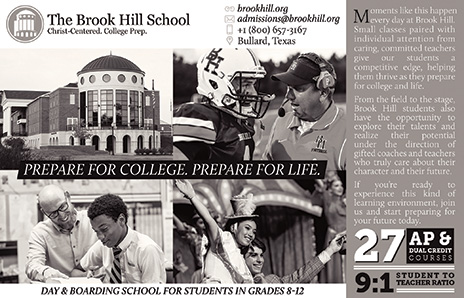Educational Preparedness: When an Evacuation Disrupts School
Like it or not, evacuations have become a fact of Foreign Service life. Here are some tips to ensure your child’s education is not compromised by a sudden departure from post.
BY MARYBETH HUNTER, CECILE MINES AND COURTNEY COLBERT
A “School” in the Hotel
Providing an opportunity for the kids to get together to do a few structured activities was comforting for them. Setting up a “school” in a hotel is not a long-term solution, but I do believe it helped the children to adapt and deal with the sudden change. I think it was a relief for them to see familiar faces and know they were all going through this together.
—Brooke Fox, evacuated from Kinshasa to Brazzaville in 2016
It’s the start of the school year. Kids are settled in, student goals established, school routines in place, when suddenly families are informed that they must evacuate post. Sound familiar? Considering the impact of recent political events and the potential for natural disasters to affect our Foreign Service families abroad, a sudden departure from post is far from unlikely.
Sometimes families leave post during the school year without knowing when (or if ) they will ever return. While the average evacuation lasts about three months, time away from post can be much longer. Those families who prepare and plan for a longer period of time tend to experience fewer frustrations.
What is the best way families with school-aged children can be ready for the unexpected when confronted with an evacuation? By creating an education preparedness plan that suits specific family needs. Think “go bag” with your family’s educational needs in mind. In fact, by being as prepared as possible to tackle educational needs, families can maximize their sense of control at a time when they need it most. Here are some simple steps to get started.
Step One: Contact the School at Post
Before leaving post, time permitting, families will need to request transcripts and standardized test results, plus an official letter from the school indicating dates of attendance, class titles, materials covered and student grades earned to date. These documents could be emailed or faxed later, but it is optimal to have paper copies, originals or digital versions on hand as you depart.
Know the virtual capabilities of your student’s school before an evacuation. Often students may be instructed to work their way through virtual or actual packets of educational material developed by teachers from the evacuated post. Families should know beforehand if their student’s school will continue their studies by accessing virtual schooling sites to complete teacher-developed modules or otherwise.
Created in 2002, in association with the Office of Overseas Schools and the staff and students of Thomas Jefferson High School for Science and Technology in Fairfax County, Virginia, the World Virtual School Project was initially used to support the March 2002 evacuation of the International School of Islamabad.
WVS assists participating schools and regions in terms of curriculum quality and continuity, opportunities for collaboration, progressive professional development and resiliency in the face of natural or manmade emergencies.
The program is offered in 85 schools around the world, and almost all of the remaining State Department–assisted schools have their own online programs that are capable of supporting temporary continuation of schooling should an evacuation of our students occur.
Step Two: Contact the School in the Safe Haven Location
Occasionally, families may travel to a country nearby to safe haven for a short period of time. In such cases, students may be invited to attend the brick and mortar school at the safe haven post, or may opt to work through assignments alone or virtually. The safe haven post may be able to assist with coordinating attendance at the brick and mortar school.
Making Choices for Your Family
As parents, we need to take responsibility for our own children’s education because everyone’s situation is different and every child’s needs are unique. Don’t sit around waiting for something to be done for your family.
We made the decision to move back into our home in Indiana during our evacuation from Cairo. It was a stressful time for all of us, especially because my husband had to stay behind.
But the best and most important thing we did was to settle the kids into schools of our choosing as soon as possible—within two days.
We elected to spend our own money to enroll them in a private school—it was expensive, but it was the right choice for our family. Don’t forget that you have choices!
The State Department did a great job of getting us out of Cairo safely … and taking care of so many of our immediate needs, but it would have been ridiculous to expect them to cater to my individual, personal circumstances.
—Marci Kilpatrick, evacuated from Cairo in 2011
Evacuations are stressful times full of uncertainty. Although an evacuation cannot last longer than 180 days, there is no guarantee—from Day 1 to Day 180—of exactly when or if the family will return to post. This is why it is recommended that families enroll their children in school where they safe haven. By doing so while on evacuation status, families are able to keep up with the valuable structure and routines they have already established at post.
It is a good idea to discuss with your family, before an evacuation happens, where you might want to safe haven. This type of planning will allow you to look at the schools in the area you might choose. Try to identify what schools will be able to accommodate your child’s particular course of study or individual needs.
It is crucial for parents of teens in high school who have been enrolled in an International Baccalaureate or Advanced Placement program to continue in a similar program during the period of evacuation at the safe haven location.
In the Washington, D.C., metro area, the Family Liaison Office maintains a list of short-term housing facilities; each facility listing includes the name or names of the local high school(s), which are tagged IB, AP or both.
We encourage parents to visit the school’s website to determine if the same IB or AP classes that your child has been studying are offered at these schools. Here are some useful websites to get you started:
Note that schools in the Washington, D.C., area are familiar with Foreign Service students and work hard to provide the continuity needed while families are evacuated. If you plan to enroll your children in a specific public school in the D.C./Maryland/Virginia area, the Family Liaison Office recommends selecting a residence with school boundary details in mind. FLO can provide a temporary housing list that indicates what schools are possible for attendance at each location.
Step Three: Find and Pack School-Related Items to Hand Carry
Foreign Service families will be required to comply with standard registration requirements when enrolling children in school in the United States. So they should hand-carry the following documents when leaving post abruptly:
Planning for Continuity
My son and I discussed the work he needed to complete each day. Assignments he was not able to complete between 9 a.m. and 12 p.m., he completed in the evening after dinner because I wanted him to be able to participate in extracurricular activities and have social time outside of the learning environment.
The Brazzaville school opened up the campus after school hours, allowing our children to come play basketball, football, etc., as well as hosting a movie night. My son returned to school feeling confident and not left behind as a result of the plans that had been implemented during the evacuation.
—Carmel Smalls, evacuated from Kinshasa to Brazzaville in 2016
- Proof of residence in the school district (e.g., temporary quarters contract, lease, mortgage). In some cases, you may also need to show a current utility bill to prove physical presence.
- Original or certified copy of birth certificates (please check with your school district to see if a passport will be accepted in lieu of this).
- Social Security number.
- Photo ID.
- Official transcripts.
- Standardized test results.
- Psycho-educational test results, if applicable.
- Current Individualized Education Plan (for children with special needs), if applicable.
- Physical exam forms, which can be downloaded from the school district website. Note: A physical exam that is less than 12 months old can be used.
- Immunization records form, also found on the school district website. Note: A copy of immunization records can be used.
- Proof of recent TB tests (within three months of enrollment), if you are coming from countries listed on the school district website.
- Letters of recommendation. Though not required, they can be helpful, especially for high school students in preparation for college admissions.
Step Four: Contact the Family Liaison Office and the Office of Overseas Schools
The Office of Overseas Schools (A/OS) and FLO’s Education and Youth Team are here to provide families with the information and tools needed to create the best education plan considering unique family needs. Regional education officers at A/OS will ensure that families have easy access to the documents they need from Department of State–supported schools overseas and will be available to guide parents on the mechanics of virtual schooling.
FLO meets regularly with school administrators in the United States and can assist Foreign Service families as they seek placement and sort out requirements for schools stateside. While we are aware that some states do offer universal or government-funded preschools, the majority do not. Families should expect to pay for preschools in the United States as they do when serving abroad.
Having an educational contingency plan in place in the event of an emergency can alleviate stress when a crisis at post occurs. Families in need of additional information should contact their Community Liaison Office coordinator at post or FLO (FLOAskEducation@state.gov) in Washington, D.C.
Resources
The following FLO webpages have been useful to Foreign Service families worldwide:
- FLO webpage on Public Schools in the Washington, D.C., area: www.state.gov/m/dghr/flo/c21970.htm
- FLO webpage on Private Schools in the Washington, D.C., area: www.state.gov/m/dghr/flo/c21978.htm
- FLO webpage on Transition, Training and the Foreign Service Child: www.state.gov/m/dghr/flo/c21967.htm
- FLO webpage on Childcare and Preschool: www.state.gov/m/dghr/flo/c21989.htm
- For more information, please contact FLO’s Education and Youth Team at FLOAskEducation@state.gov.
- For youth preparedness information and tools, check out www.ready.gov/youth-preparedness.














